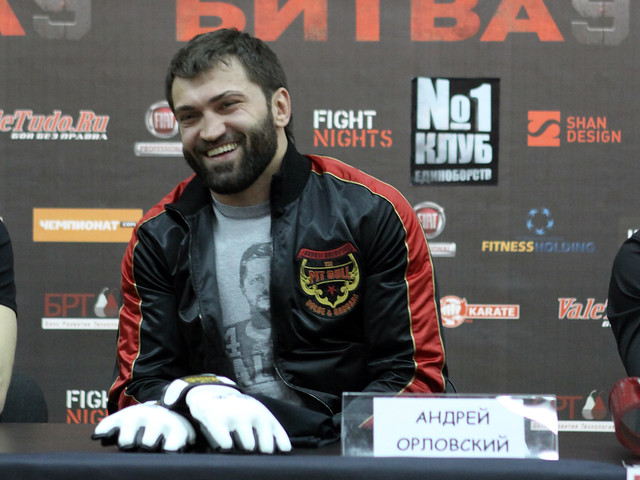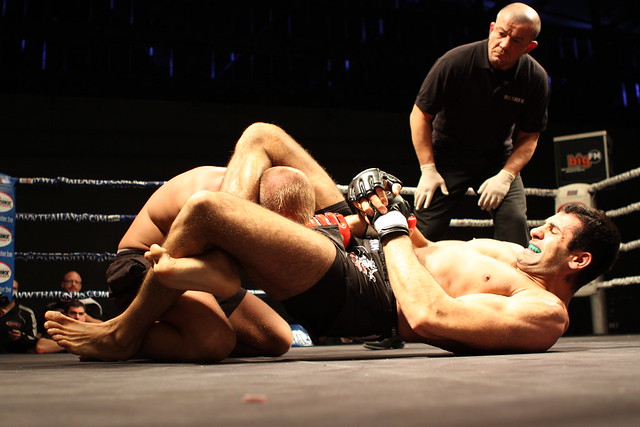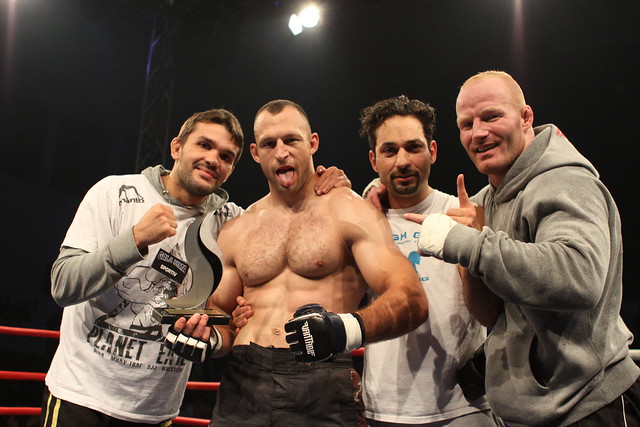
In lights of recent events where one of our fighters managed to miss the flight to the biggest fight of his career and caused both me and my partner a major headache, there’s one thing I need to get off my chest: Not being on time is not acceptable. If I know my flight is leaving at 10:45 in the morning, I need to be at the airport at nine and if I have a three-hour drive there, I will start at 4:30 to make sure I am on time.
Leaving the passport at home and only realizing it half an hour later is not an excuse. Making the wrong turn on the freeway is not an excuse. Full road closure is not an excuse. You need to be able to suffer from unexpected incidents and still be able to remain in line with the schedule. Being unpunctual is unprofessional and a total lack of respect towards the promoter, your opponent, the fans as well as your own coaches and teammates.
I have learned from some of the best in the business like legendary former UFC event coordinator Burt Watson or the deviser of discipline Jocko Willink and their decade-long success is based on organization, punctuality and reliability. These are values that every single one looking to make a career in the sport of mixed martial arts or any sport for that matter should take to heart. You won’t succeed if you don’t stick to these core values.
Our agency is working with the biggest events in the world and personally I am involved with several promotions as well, working as the head of sports. I will give everyone the benefit of a doubt once. Shit can happen and I will cut you a break. But if I find out about a certain fighter, team or group that is notoriously late, you can rest assured that you won’t be considered for any events I am working with in the future.
//
Auf Grund aktueller Ereignisse, bei denen es einer unserer Sportler fertigbrachte den Flug zum größten Kampf seiner Karriere zu verpassen und mir und meinem Partner damit sehr viel Kopfschmerzen bereitet hat, muss ich einmal etwas loswerden: Unpünktlich zu sein, ist nicht akzeptabel. Wenn ich weiß, dass mein Flug um 10:45 Uhr vormittags geht, ich um neun am Flughafen sein muss und eine Fahrt von drei Stunden habe, dann fahre ich um 4:30 Uhr los, um sicher zu stellen, dass ich pünktlich dort bin.
Den Reisepass zu Hause zu vergessen und es erst eine halbe Stunde später festzustellen, ist keine Ausrede. Auf der Autobahn falsch abzubiegen, ist keine Ausrede. Vollsperrung der Fahrbahn ist auch keine Ausrede. Man muss trotz unerwarteter Ereignisse in der Lage sein trotzdem den Zeitplan einzuhalten. Unpünktlich zu sein ist unprofessionell und zeugt von Respektlosigkeit dem Veranstalter, dem Gegner, den Fans und den eigenen Trainern und Teamkollegen gegenüber.
Ich habe von einigen der Besten in unserem Geschäft wie dem legendären langjährigen UFC-Eventkoordinator Burt Watson oder dem Erfinder der Disziplin Jocko Willink lernen dürfen und ihr jahrzehntelanger Erfolg basiert auf Ordnung, Pünktlichkeit und Zuverlässigkeit. Das sind Tugenden, die sich jeder, der eine Karriere im MMA-Sport, oder auch jedem anderen Sport zu Herzen nehmen sollte. Wer sich nicht an diese Werte hält, wird keinen Erfolg haben.
Unsere Agentur arbeitet mit einigen der größten Veranstaltungsreihen weltweit und ich bin selbst bin nun auch als sportlicher Leiter in einigen Events involviert. Ich werde bei jedem einmal ein Auge zudrücken. Scheiße kann passieren und ich reiße dir nicht die Eier ab. Aber wenn ich herausfinde, dass ein bestimmter Kämpfer oder ein bestimmtes Team notorisch unpünktlich ist, werde ich es in Zukunft für keine meiner Veranstaltungen mehr in Betracht ziehen.




